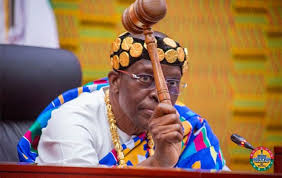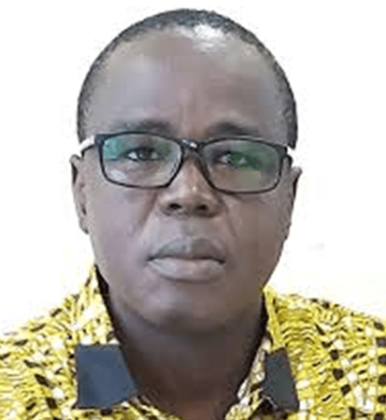By Amos SAFO
The 9th Parliament of Ghana is getting interesting as the dust is settling over a House that has attracted more negative accolades than positives since 2020.
The recent backlash against Parliament arose from the ‘legal’ or ‘illegal’ expulsion of four Members of the 8th Parliament by the Speaker of Parliament, Alban Sumana Bagbin. The Speaker’s unilateral action was based on the decision of the four members to contest as independent members of Parliament in the 2025 elections.
The Speaker then reconstituted Parliament and declared opposition of NDC as the new controversial majority, while the ruling NPP majority became the minority members. The Supreme Court’s ruling over the unconstitutionality of the Speaker’s action did little to dissuade him from reversing his decision.
The Speaker subsequently adjoined Parliament several times perhaps, to prove that Parliament was a master of its own rules. This triggered boycotts of Parliamentary proceedings by NPP members of Parliament. The turn of events sent wrong signals to Ghana’s development partners that our democratization process was going off the tracks.
Shocking defeat
It was against this backdrop that Ghanaians went to the polls on December 7, 2024. The outcome of the election was shocking to put it mildly, as the ruling NPP lost most of its seats across the country. The results, perhaps, actualized Speaker Bagbin’s premonition that the NPP had become the minority prior to the election.
On the contrary, the NDC had overwhelming seats to the surprise of many Ghanaians. According to the permutations, the ruling NDC commands two-thirds of MPs (188), which empowers it to potentially do whatever they want. This could include possibly “legislating to make men become women and women to become men.” A possible attempt by the NDC to amend the 1992 Constitution to give President Mahama a third term cannot be discounted.
“Micro minority”
Perhaps, reveling in the massive presidential and parliamentary victories of his party (NDC), the Speaker of Parliament is reported to have described the current NPP MPs as “micro minority.” This phrase cogently means that the 9th Parliament of Ghana can function without the 88 MPs of the NPP. NPP has seen its strength and fortunes dwindle from 169 seats to 137 and now to a mere 88. The party has started a postmortem to find the root cause of their steady political decline.
Nevertheless, the Minority Leader of Parliament, Honourable Alexander Afenyo-Markin, has rejected the Speaker’s labelling of his side as “micro minority.” The NPP caucus have rather branded themselves as the “might minority”, which is ready to stand up to the “Trash majority”, in apparent reference to the NDC’s large majority. In several public reactions to the derogatory tag on them, the Minority Leader, Hnourable Afenyo-Markin assured Ghanaians that the minority leadership which includes Patricia Apiagyei as Deputy Minority Leader, Frank Annoh-Dompreh as Chief Whip, Habib Iddrisu as First Deputy Minority Whip and Jerry Ahmed Shaib as Second Deputy Minority Whip, will standup to the majority with all their numbers.
The notion is that Parliament is a ‘deliberative’ chamber, where innovative and positive ideas will prevail, rather numbers. Simply put, apart from the periods when voting by acclamation will require numbers, the MPs who will earn the respect of Ghanaians will be those who will make meaningful contributions on pressing national issues.
Thus contributions like “Honourable nominee, congratulations, take care of yourself, bye, bye” , by a majority member on the vetting committee makes a mockery of Parliament.
Vetting of nominees
As if on cue the Minority Members on the Vetting Committee led by Honourable Afenyo-Markin gained national and international attention during the vetting of nominees a few weeks ago.
The incisive and revealing questions the minority members asked Samuel Okudzeto Ablakwa and Sam George about their lifestyles and sources of income have caught national and international attention. During the vetting Sam George and Samuel Ablakwa who are among the most erudite and sometimes controversial communicators of the NDC saw their egos deflated by Afenyo-Markin and his team.
For the first time in his public discourse, I saw Sam George making hand gestures for calm during the vetting. However, Ablakwa came to the vetting with a list of the Minority’s Leader’s assets, rather than answering questions about his assets and sources of income.
In fact, the Minority’s demands for the President’s nominees for Foreign Affairs and Communications to reconcile their lifestyles with their sources of incomes could turnout to be the greatest public service they would have rendered to Ghana.
Mr. Samuel Ablakwa’s response to questions on his income and the huge rent he pays for a house at Airport hills reminded me of Peter Tosh’s song that, “If you live in a glass house don’t throw stones.” For the best part of NDC’s eight years in opposition.
Mr. Ablakwa arrogated himself the right to investigate and reveal peoples’ sources of income and their properties. At a point he alleged that Ex-President Akufo-Addo’s daughters had grabbed state lands in prime areas of Accra, a false trend he described as amounting to “state capture.”
Peddling fake news
When asked by the former Minister of Lands and Natural Resources, Mr. Samuel Abu Jinapor to substantiate his allegation at the vetting, Mr. Ablakwa shifted the blame to the Lands Commission, which supposedly fed him with wrong information.
Yet, this same fake news was released to the court of public opinion, which condemned the Ex-president and his daughters. It is either T.M. Aluko or Chinua Achebe in one of their books who stated that “wrongdoing is a hill, everyone mounts on his and decries that another.”
Travel schedules
Furthermore, during eight years in opposition, Mr. Ablakwa specialised in revealing the travel schedules of ex-President Akufo-Addo, to the extent of publishing details of aircrafts he flew in and the hotels he slept, all in the name of turning public anger against the Ex-president, perhaps, for political gain.
Now that Mr. Ablakwa is Ghana’s Foreign Minister, how will he feel if someone were to track and publish his travel schedules? Whatever goes round, they say always comes round, or “if you throw a ball at the wall, it will certainly bounce back to you.” The demeanors of both Samuel Ablakwa and Sam George during their vetting taught me a useful lesson that no one is an angel, and that we should always choose our words and actions carefully because our words and actions will one day haunt us.
Let us all be mindful that whatever we publish on social media will become a permanent part of our personal profiles. Thanks to the power of social media people can retrieve videos, pictures, voices and texts we publish.
I am not by any means suggesting that we should not expose corruption in the public sector, but as the legal axiom says, “he who comes to equity must come with clean hands (i.e. a person who makes a claim in equity must be free from any taint of fraud with respect to that claim). Simply put in a layman’s language “he who accuses must ensure he is clean.”
Conscience of Ghana
Certainly, in this era of NDC’s overwhelming majority, Ghana needs a very strong, focused and unyielding opposition. Though the majority as is constituted can always have their way, the minority must let their voices be heard. They should never allow their voices to drown, else our democracy will become meaningless.
They should not allow themselves to be taken for granted but must rather become the conscience of the country. Perhaps, one good thing Ghanaians can benefit from such a small opposition is for them to stand up for the truth in the face of intimidation, insults and threats from the majority and their supporters.
Above all, the minority who rebranded themselves as the “might minority” should not allow themselves to be compromised in any way for the sake of protecting the 1992 Constitution from the abuse of the majority. Parliament should not become a “fetish”, where only the fetish priest can talk and whatever he/she says becomes final. For this reason, the opposition must make their voices heard, although the majority will always have their way.

Quality of ideas
No matter what their small number, it is the quality of ideas and debate that will make the minority more relevant. So far, a lot of Ghanaians have given them thumbs up for competently scrutinizing some of the ministerial nominees. This far, many people are hailing the leadership qualities of the MP for Efutu (Winneba) Hon. Afenyo-Markin.
Personally, I see the Efutu MP as a down-to-earth politician. I have watched several videos of him on social media drumming, singing, clapping and dancing with his people. I have never seen a politician immersed in the culture of his people in recent memory.
This perhaps explains why the people of Efutu over the years have reposed so much confidence in their young, dynamic and erudite Member of Parliament. Whereas many former NPP MPs lost their seats by slim margins, Honourable Afenyo-Markin won by a colossal 20,000 margin. This is the extent of confidence the people of Winneba have in the Minority Leader.
Thanksgiving
I suggest that the NPP leadership should consider organizing a national thanksgiving service at Winneba to recognize and honour the people of Winneba and their MP. Whereas NPP lost most of their seats in the Central and Western Regions, the people of Winneba kept faith in the party and its MP. For this reason, it makes sense for any rebuilding efforts to start at Winneba.










